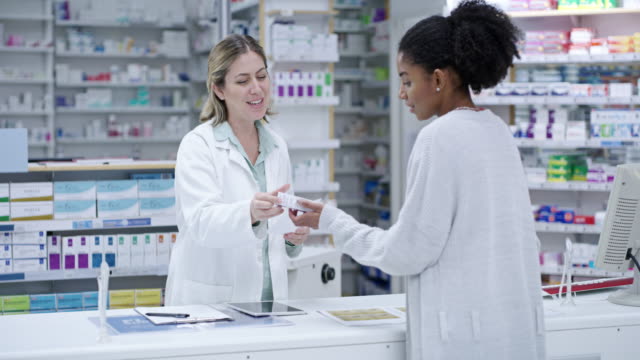Bashir Salisu Bawa
Obviously, pharmacy profession is one of the best professions and professional programmes across the world. Moreover, pharmacy is one of the most respected healthcare professions, with many tremendous job opportunities. There is no doubt that it is the most dynamic and most versatile healthcare profession in terms of practice. This is so because it provides for trained individuals in the field to be fit for or to specialise in one of the core areas of pharmacy practice, such as the hospital as a clinical pharmacist; or in community setting, as a community pharmacist; or in the industry as an industrial pharmacist. The can also be in research institutes, academia, armed forces and regulatory agencies, among others. Furthermore, a pharmacist can venture into other areas outside of Pharmacy, such as business administration, marketing, and so forth.
Specifically in Nigeria, the pharmacy profession is now gaining more recognition from both the government (e.g. the recent approval of consultant pharmacist cadre by the Federal Government of Nigeria) as well as the Nigerian citizens, despite the challenges that pharmacists are currently encountering from different angles in discharging their obligations. I suggest we should take all these as a driving force for us to put in more dedication and attention throughout our training period.

Broader understanding
May I also suggest that we, as students of pharmacy in Nigeria and future pharmacists, need to widen our focus and expand our understanding of the nature of Pharmacy as a profession? There is no tree without roots; and, of course, there can be no solid building without a solid foundation. This simply means that having a good background is of paramount importance for our journey of becoming the outstanding pharmacists of the future. I am sure that the category of pharmacists we are dreaming to belong are those who are competent and capable of protecting the rights and image of the pharmacy profession wherever they are found.
It is time for us to see the need for self-determination to improve our competencies, knowing and taking responsibilities, not slumbering on the shoulder of pharmacists, and demystifying our primary responsibilities. These responsibilities encompass the following areas:
1. Pharmaceutical industry: This is an area where pharmacists are responsible for consistent search of pharmaceutical raw materials, ensuring local production of active pharmaceutical ingredients, production of pharmaceutical excipients, and ensuring good manufacturing practice of local pharmaceutical products.
2. Community pharmacy: This is where pharmacists practise as community pharmacists. They have the licence to open their pharmacy premises, and they are closer in contact with people in the respective communities where they practise their acquired skills in solving drug-related problems for their clients or patients.
3. Hospital pharmacy: This is another practice setting for pharmacists, where they practice as clinical pharmacists. Their roles in patients care, drug information, therapeutic drug monitoring, individualising drugs regimen, solving drug-related problems and patients counselling can never be overemphasised.
4. Academia: Another responsibility is ensuring consistent training of future pharmacists. There is no doubt that only pharmacists can train the future pharmacists. Presently, there are some students among us who have the passion to become lecturers; and to be fit for that, there is need for us as students to double our efforts and prepare our minds well.
Acclimatisation and right orientation
As long as we truly need a brighter future for the pharmacy profession and cosy practice environments for pharmacists in Nigeria, there is a compelling need for pharmacy students in Nigeria to acclimatize, especially considering the way politics is currently mounting pressure on pharmacists; and to also comply with whatever standard that is necessary in favour of the future of pharmacy in Nigeria.
To achieve that, we must be excellent in terms of learning and character – not just running after grades or success but seeking to be well-knowledgeable and highly-skilled in whatever we learn in school. Most of our courses have their practical aspects; therefore, we must be able to relate the theories and the practicals.
We should have it at the back of our minds that whatever we learn in school, surely there are days coming that we must put them into practice as pharmacists. We may not have anyone to correct us that day and we must not make mistakes. I believe we all know what it means for a pharmacist to make a mistake; subnormal mistakes could harm a patient. The success of our ability to save lives with our knowledge and skills in the future depends on how well we are currently appreciating the training given to us, and the extent to which we are deepening our learning behaviours in school.
Proactive initiatives
Even though we are students, I believe every faculty of pharmacy has the most formal association known to be the Pharmaceutical Association of Nigeria Students (PANS), which of course has a national body and chapters in all accredited faculties of pharmacy in Nigerian universities. Through the association, we can actually be consistent in initiating programmes that will constantly be alerting the public about the existence of pharmacy students and how ready we are in applying the knowledge we have acquired from our respective schools. By extension, collaborative agreement can be reached between two or more faculties of pharmacy in executing annual mega rallies/campaigns, especially on drug abuse and misuse, and the issue of drug resistance, which, of course, without question, actually calls for concern.
Programmes on drugs misuse, drug abuse, drug resistance and control, health education regarding diseases and control measures, ways to improve personal hygiene among the people, sensitisation visit to local communities and participation in medical outreaches can be put in place to effect positive changes in the society by pharmacy students. We need to be bold enough to reveal our readiness to offer our contributions to the public, with regard to public health, with little or no supervision.
This is a call to take responsibilities while we are under training. We must have come across, in one way or the other, the enormous side-effects associated with the current abuse of drugs – how those drugs influence individuals to be prone to committing crimes such as insurgency and banditry among others); and the rapid development of drug resistance (particularly antibiotics) among people due to non-adherence of patients to their medications.
Even though studying Pharmacy is hard, as we all know, it should not in any way prevent us from engaging in programmes that will help boost our image in the society.
Best conduct, knowledge acquisition and political participation
It is obvious that pharmacy students in any university are among the most highly respected, as well as the most disciplined. We actually need to maintain that standard or even improve. We must avoid engaging in anything that will eventually lead to the deterioration of our integrity. Having said that, the credit for our good moral behaviour in school goes to our parents and lecturers. We sincerely thank them all for moulding and shaping us with high moral standard.
When it comes to academic and professional standard, we need to think of international standard. This is so because the B.Pharm in Nigeria is the same B.Pharm in the United Kingdom (UK) or the United States (US); so also is the PharmD, as the case may be. It is expected that, once a pharmacist, always a pharmacist in normal circumstances. In relation to that, we need to be complying with the international standard, so as to maintain competency, capability and all other roles expected of pharmacy students across Nigeria.
We also need to embrace the transition of professional educational programmes, particularly the ongoing transition from B.Pharm of five years to the latest programme available, which is already approved by the NUC and the PCN, the PharmD (Doctor of Pharmacy degree) of six years. Although we currently have few facilities accredited to offer PharmD, we still must adapt to the transition. With B.Pharm, one can actually convert to PharmD through enrolment for postgraduate programmes
One of the major reasons why the pharmacy profession is facing challenges in Nigeria is pharmacists’ lack of involvement in politics. It has indeed become necessary, especially for our colleagues in various schools, to involve themselves in relevant unionism such as PANS, SUG etc. Gradually, as time goes on, we will begin to have pharmacists who will become active politicians. This, at any point, can become an added advantage, especially in the fight for the rights and progress of our noble profession.
Finally, I would like to urge all pharmacy students across Nigeria to ensure consistency, dedication, determination and hard work in both academic commitments and maintenance of good behaviour. Similarly, we should, at all times, perceive one another as colleagues, irrespective of the schools we come from. Cooperation should be our priority because it is only through cooperation among ourselves that we can deliver effectively.
Bashir Salisu Bawa is a 400 level student of Faculty of Pharmaceutical Sciences, Kaduna State University.












Awesome 👏
Splendid!
Nice write up!